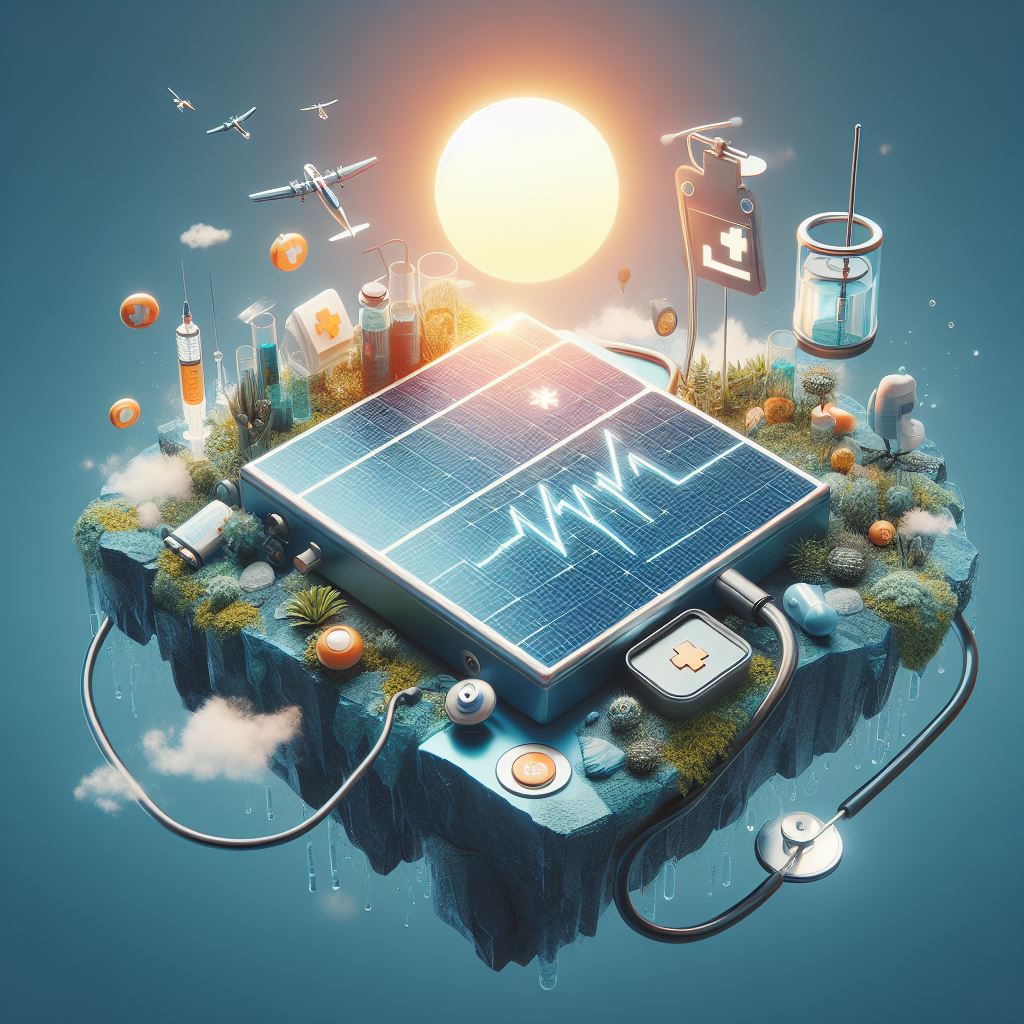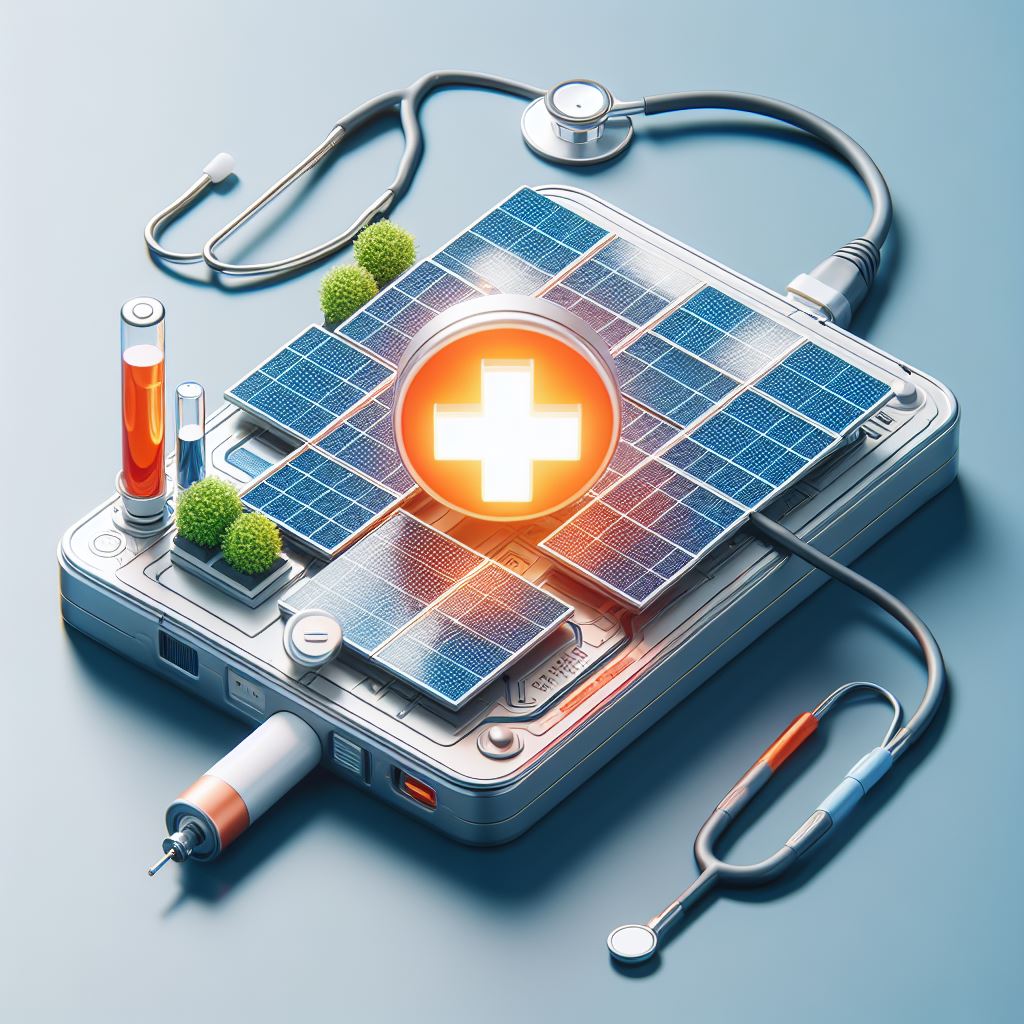
The emergence of solar-powered medical devices marks a significant stride towards a greener and more efficient healthcare system.
The Rise of Solar-Powered Medical Devices
The global shift to renewable energy has catalyzed a paradigm shift in the healthcare sector, with an increasing embrace of solar-powered medical devices. These cutting-edge devices capitalize on solar panels to tap into the boundless energy of the sun, establishing a sustainable and dependable power foundation for an array of medical applications. This transformative integration of solar power spans a spectrum from portable diagnostic tools to critical life-saving equipment, reshaping the very fabric of healthcare technology.
The healthcare industry’s acknowledgment of solar-powered devices signifies a commitment to reducing its ecological footprint. The reliance on solar energy positions these medical devices as eco-friendly alternatives, aligning with the broader global effort to create a sustainable and greener future.
The versatility of solar-powered medical devices is particularly evident in their application across various healthcare settings. Portable diagnostic tools, empowered by solar energy, offer a solution to the logistical challenges faced in remote or underserved areas. These devices empower healthcare professionals with the capability to conduct critical diagnostics without being tethered to conventional power sources, thereby enhancing the reach and impact of medical interventions.
Solar-powered medical devices address the perennial issue of energy independence in healthcare. By circumventing traditional power sources, these devices ensure continuous operation, even in regions plagued by unreliable or non-existent electrical grids. This newfound energy resilience is a game-changer, especially in emergency situations and disaster-stricken areas, where uninterrupted access to medical equipment can be a matter of life and death.
As the world grapples with the impacts of the COVID-19 pandemic, solar-powered ventilators have emerged as a beacon of hope. These ventilators, sustained by solar energy, provide a sustainable solution to the urgent need for respiratory support. The pandemic underscored the critical importance of reliable medical equipment, and solar-powered devices proved their mettle by offering a dependable and environmentally conscious response to the crisis.
Advantages of Solar-Powered Medical Devices
Energy Independence
Achieving energy independence stands out as a paramount benefit of solar-powered medical devices. These innovative devices liberate healthcare facilities from the constraints of traditional power sources by harnessing the sun’s energy. Operating autonomously, they ensure uninterrupted functionality, a critical feature for medical interventions in remote or underserved areas. This newfound independence from the electrical grid enhances the reliability of healthcare services and addresses the longstanding challenges posed by unreliable power infrastructure, making solar-powered medical devices a beacon of accessibility and efficiency in diverse healthcare settings.
Cost-Efficiency
The cost-efficiency of solar-powered medical devices is a standout feature in sustainable healthcare. Opting for solar power presents a financially savvy alternative to traditional energy sources. Despite the initial investment in solar panels, operational costs witness a substantial decrease over time. This economic advantage positions solar-powered solutions as a viable and attractive option for healthcare facilities seeking to trim expenses. Beyond the immediate fiscal benefits, the long-term savings amplify the appeal of these devices, aligning fiscal prudence with a commitment to eco-friendly practices in modern healthcare.
Environmental Impact
The environmental impact of embracing green practices in healthcare extends beyond financial considerations, creating a positive ripple effect for our planet. Solar-powered medical devices are very important in this green transition, generating clean energy that minimizes carbon emissions. By harnessing the sun’s power, these devices significantly reduce the overall environmental footprint of healthcare operations. This dual benefit — financial and ecological — underscores the key role of solar-powered solutions in fostering a healthier planet while promoting sustainable healthcare practices. It’s a testament to the interconnectedness of fiscal responsibility and environmental stewardship, ushering in a new era where healthcare innovation aligns seamlessly with the well-being of our global ecosystem.
Enhanced Accessibility
Enhancing accessibility is a hallmark feature of solar-powered medical devices, owing to their inherent portability and adaptability to areas with limited electricity access. This characteristic proves especially vital in emergency situations, natural disasters, or regions grappling with inadequate infrastructure. In these challenging scenarios, where reliable power sources are indispensable for life-saving medical interventions, solar-powered devices emerge as a beacon of hope. Their portability facilitates swift deployment, ensuring that medical equipment can reach and function effectively in areas where traditional power sources may be unreliable or nonexistent. This accessibility boost exemplifies how solar technology is not just an innovation but a solution that bridges healthcare gaps in diverse and challenging environments.
Applications of Solar-Powered Medical Devices
The advent of solar-powered diagnostic tools represents a transformative leap in remote healthcare settings. Portable devices like handheld ultrasound tools and solar-charged X-ray machines are reshaping medical diagnostics. These solar-powered marvels serve as game-changers, liberating healthcare professionals from the constraints imposed by traditional power sources. In remote settings where electricity access is limited, these portable diagnostic tools become invaluable. They empower healthcare providers to conduct diagnostics swiftly and efficiently, bringing advanced medical capabilities to the farthest reaches.
The imperative for ventilators during the COVID-19 pandemic underscored a global healthcare challenge. Solar-powered ventilators emerged as a beacon of hope, providing a sustainable solution to the pressing need for life-saving respiratory support. In regions grappling with unreliable power grids, these innovative ventilators ensure continuous operation, mitigating the challenges posed by inconsistent electrical supply. By harnessing solar energy, they contribute to the ongoing battle against respiratory illnesses and exemplify how solar technology can address critical healthcare needs, especially in areas where access to a reliable power source is a persistent challenge.
The integration of solar technology has paved the way for groundbreaking advancements in healthcare, particularly with the development of solar-powered remote monitoring devices for patients with chronic conditions. These innovative devices go beyond traditional monitoring by continuously collecting and transmitting crucial health data. This real-time data exchange empowers healthcare providers to offer timely interventions, fostering a proactive approach to patient care. Importantly, these solar-powered remote monitoring devices also promote patient independence, allowing individuals with chronic conditions to manage their health more actively while staying connected with their healthcare providers.
Solar-powered medical devices represent a groundbreaking intersection between healthcare and sustainability. As we continue to explore innovative solutions to address global challenges, the integration of solar technology in healthcare contributes to a greener and more resilient healthcare infrastructure. The sun, once merely a source of light and warmth, is now a beacon guiding the way to a healthier and more sustainable future in medical technology.

